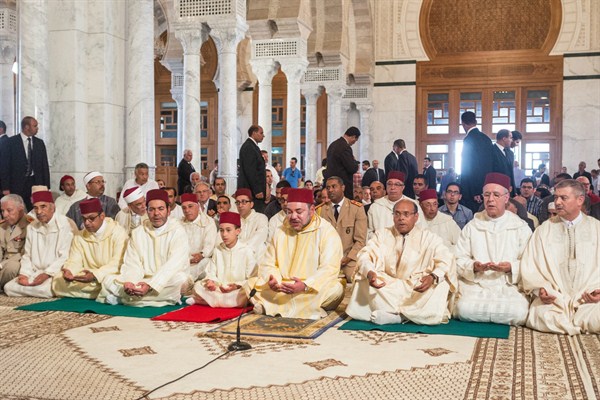MARRAKECH, Morocco—There is a strong consensus among counterterrorism experts in the Maghreb and the Sahel that comprehensive and integrated approaches are needed to confront the threat from al-Qaida, the so-called Islamic State (ISIS) and their regional affiliates and rivals. Military force is necessary but not sufficient to deal a significant blow to this all-consuming threat: Everything from educational reform to inclusive economic growth is on the policy table. One of the trickiest components of such a comprehensive approach is what governments can do to nurture peaceful practices in Islam, and tolerance between Muslims and followers of other faiths.
Morocco has some ideas. Though still not a member of the African Union due to the Western Sahara dispute, Morocco sees itself as a major player in the Sahel and sub-Saharan Africa. As part of an effort to facilitate information-sharing and promote coordination in the fight against terror, a Moroccan nongovernmental organization, the Moroccan Center for Strategic Studies, convenes an Arab-African conference each year. Last week’s Marrakech Security Forum was the seventh of these annual events.
As always when security officials and political analysts gather to discuss the terrorist threat in Africa, there was little debate last week about the need for multiple policy initiatives that tackle the full suite of issues, from the recruitment supply chain to the recuperation of territory under extremist control to the treatment of foreign fighters returning home. The necessary responses draw on the national security assets of each country, but also on the essential functions of good government. Education and jobs are the best long-term antidotes to the lure of terrorism, but experts also concede that governments have to decide how far they can go in trying to regulate or reform religious institutions and practices that have been complicit in radicalization.

